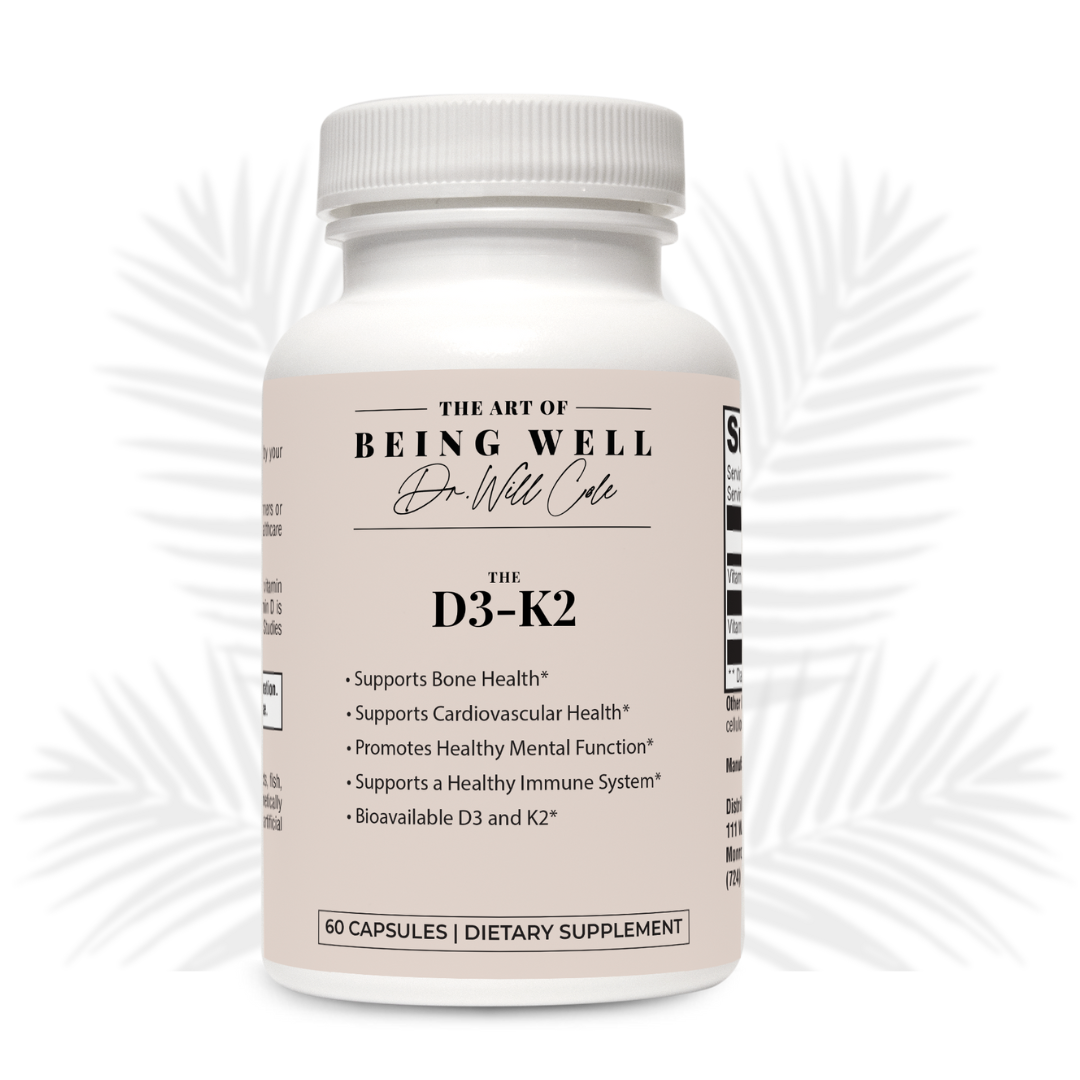The Best Home Remedies To Boost Your Child’s Immune System

The start of the school year brings a mix of excitement and anxiety for many families. New school supplies, new friends, and unfortunately, the sniffles, new viruses, and bacteria.
Strengthening your child's immune system is essential to help them stay healthy and reduce sick days. Here are the best home remedies to boost immunity and keep your child protected during cold and flu season.
Signs + Causes Of A Weak Immune System
Understanding the signs and causes of a weak immune system in children is the first step toward proactive healthcare.
Here are some common signs that your child's immune system might need a boost:
Resisting the urge for parental guilt, consider the following common causes of a weak immune system in children. Remember, no parent is perfect, and you’re already doing a great job by seeking out this information:
Tired of feeling controlled by chronic health challenges? As one of the top Functional Medicine Practitioners, I created The Autoimmune Health Reset Program to address your health challenges and symptoms and uncover WHY you have them in the first place.
How To Increase Your Child’s Immunity
Building up a strong immune system for your children’s health includes a combination of lifestyle adjustments and natural remedies. Here are the 8 most effective strategies I recommend to my patients:
1. Cultivate A Consistent Sleep Schedule
A consistent sleep schedule is crucial for your child's immune health. Aim for 10-14 hours of sleep daily, with a set bedtime and wake time. It’s also important to eliminate screen time at least 1-2 hours before bed. (1)
Other tips to promote enough sleep include magnesium spray on the feet, drinking tart cherry juice (which has a high melatonin content), and diffusing lavender essential oil.
Reading to your child or creating other calming bedtime routines can also help reduce their anxiety and promote restful sleep.
2. Serve Up Balanced Meals
Providing a variety of healthy foods will ensure your child gets the nutrients they need for a healthy immune system. Here are some key points to consider for a healthy diet:
For children who refuse to eat veggies, try making green smoothies and popsicles with just a little fruit for sweetness. This way, they get a sweet treat rich in phytonutrients, and you ensure they are strengthening their immunity and natural resilience.
3. Make Sure They’re Getting Enough Vitamin D
Vitamin D is essential for immune function. Encourage outdoor play to ensure natural sunlight exposure, which helps the body produce vitamin D. Plan family walks, outdoor games, and meals outside to maintain optimal levels. Vitamin D deficiencies are common and can impact immune health, so consider supplements if necessary.
Shop This Article
My supplement, the D3-K2, is formulated with two highly bioavailable forms of vitamin D and K2 to support overall health and immune system function for noticeable, sustainable healing.
4. Help Them Manage Their Stress Levels
Stress can significantly suppress the immune system. Help your child manage stress by engaging in hobbies, ensuring a balanced school life, and maintaining regular social interactions. Practice co-regulation by spending quality time together, talking, and providing a calm environment. Techniques like deep breathing, mindfulness, and physical activities can also help.
5. Avoid Antibiotics, Add In Probiotics
Antibiotics are prescribed over 154 million times a year for various infections, but the CDC estimates 30% are unnecessary. (2) Antibiotics kill both harmful and beneficial bacteria in the gut microbiome. Before accepting a prescription, ask your doctor if antibiotics are essential, if your child's natural immunity could handle the infection, or if there are natural alternatives like colloidal silver.
Serve the probiotic-rich foods mentioned above to counteract the effects of necessary antibiotics and boost the immune system. For picky eaters, kid-friendly probiotic gummies can help, but whole food sources are best.
LISTEN: Hannah Kleinfeld: Healing The Gut-Brain Axis Through Targeted Probiotics
6. Give Them A Colostrum Boost
Colostrum, the first milk nursing mothers produce, is rich in immune-boosting antibodies. Due to this protective substance, breastfeeding children are often healthier with fewer allergies.
Older kids and even adults can benefit from colostrum derived from grass-fed cows and goats, available in powdered form.
Add it to smoothies, water, or juices to enhance your child's immune defenses.
7. Incorporate Natural Herbs + Oils
Natural herbs and oils like eucalyptus and oregano have antibacterial and immune-modulating properties. Diffuse these oils in your home or add food-grade oils to meals to support your child's immune system. Eucalyptus has an energizing effect, and oregano oil can enhance the flavor of meals while boosting immunity. (3,4)
8. Short-Term Remedies
When your child starts showing the first signs of sickness, acting quickly with effective remedies is one of the best things you can do. Here are some proven methods to boost their immune system and help them recover faster:
Elderberry Syrup
Elderberry is known for its antiviral properties and can help reduce the duration and severity of colds and flu. Discuss the following recommendations with your child’s pediatrician:
Minced Garlic in Honey
Garlic has antimicrobial properties, and honey soothes the throat and helps with coughs. Discuss the following recommendations with your child’s pediatrician:
Vitamin C Supplements
Vitamin C boosts the immune system by supporting various cellular functions of the body's adaptive immune system. Discuss the following recommendations with your child’s pediatrician:
Vitamin D Supplements
Vitamin D is essential for immune function and helps reduce the risk of infections. Discuss the following recommendations with your child’s pediatrician:
Zinc Supplements
Zinc is important for the growth and function of immune cells that help protect your child from infections. Discuss the following recommendations with your child’s pediatrician:
Colloidal Silver
Colloidal silver has antimicrobial properties, but it should be used with caution and under the guidance of a healthcare provider. Discuss the following recommendations with your child’s pediatrician:
Echinacea
Echinacea is used to prevent and treat colds by boosting the immune system. It is available in various forms, including tinctures and teas. Discuss the following recommendations with your child’s pediatrician:
A Functional Medicine Approach To Immunity
A functional medicine approach personalizes healthcare and identifies the root causes of health issues. For comprehensive immune support, consider consulting with a functional medicine expert to tailor a plan specific to your child's needs.
If you’re interested in a holistic approach to your or your child’s health, I can help. Schedule a consultation to get to the root of symptoms and begin a path to long-term wellness.
Start Your Health Journey Today
FUNCTIONAL MEDICINE CONSULTATIONS FOR PEOPLE AROUND THE WORLD
- Suni, Eric. (2024). How much sleep do babies and kids need?. Sleep Foundation, Sleep Doctor: Children and Sleep.
- Centers for Disease Control and Prevention. (2016). CDC: 1 in 3 antibiotic prescriptions unnecessary. CDC Archives.
- Sadlon, A. E., & Lamson, D. W. (2010). Immune-modifying and antimicrobial effects of Eucalyptus oil and simple inhalation devices. Alternative Medicine Review: A Journal of Clinical Therapeutic, 15(1), 33–47.
- Zou, Y., Xiang, Q., Wang, J., Peng, J., & Wei, H. (2016). Oregano essential oil improves intestinal morphology and expression of tight junction proteins associated with modulation of selected intestinal bacteria and immune status in a pig model. BioMed Research International, 2016, 5436738.
The information on this website has not been evaluated by the Food & Drug Administration or any other medical body. We do not aim to diagnose, treat, cure or prevent any illness or disease. Information is shared for educational purposes only. You must consult your doctor before acting on any content on this website, especially if you are pregnant, nursing, taking medication, or have a medical condition.
Our content may include products that have been independently chosen and recommended by Dr. Will Cole and our editors. If you purchase something mentioned in this article, we may earn a small commission.

BY DR. WILL COLE
Dr. Will Cole, DNM, IFMCP, DC is a leading functional medicine expert who consults people around the globe, starting one of the first functional medicine telehealth centers in the world. Named one of the top 50 functional and integrative doctors in the nation, Dr. Will Cole provides a functional medicine approach for thyroid issues, autoimmune conditions, hormonal imbalances, digestive disorders, and brain problems. He is also the host of the popular The Art of Being Well podcast and the New York Times bestselling author of Intuitive Fasting, Ketotarian, Gut Feelings, and The Inflammation Spectrum.

Gut Feelings
Healing The Shame-Fueled Relationship
Between What You Eat And How You Feel



